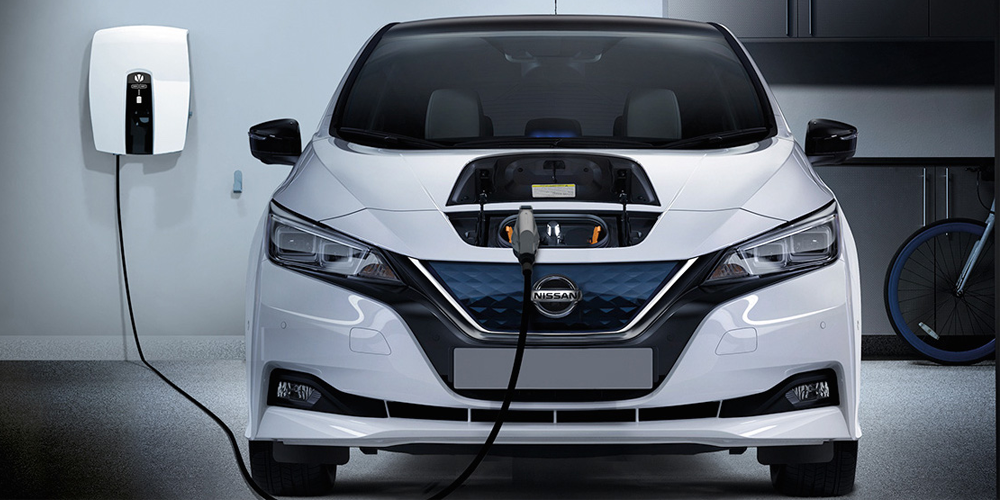No Kathleen Valley stope this month – Liontown
The firm is aiming to shift to underground production next month, and maintains everything is on schedule
Customers will have to wait until 2024 for a compatible car

Chinese-owned Swedish OEM Volvo Cars has made an undisclosed investment through its tech fund in smart home energy company Dcbel, as it seeks to get a toehold in the market for vehicles that can send power to homes, electrical equipment and even back to the grid.
Dcbel’s r16 home energy station manages electricity generated from rooftop solar and stored inside home and vehicle batteries to balance energy needs across the home using intelligent software. Last year, Volvo unveiled the EX90, its first vehicle capable of bidirectional charging.
EV manufacturers and energy companies, from Germany's Volkswagen and BMW to BP and Shell, are investing in start-ups specialising in bidirectional charging, also known as vehicle-to-load (V2L), vehicle-to-grid (V2G) and vehicle-to-everything (V2X) technology. A recent V2G trial using a system develop by start-ups Indra and Kaluza demonstrated users in the UK could earn £420-800/year.
For utilities, V2G technology allows cars to be used as part of a so-called 'virtual power plant', offering a combined additional source of power during periods of high demand and allowing them to incentivise car owners to charge during periods of low demand. There are more than a dozen EVs on the market today offering more than 300 miles of range, but most people drive no more than 40 miles a day, making auto batteries an under-used utility.
"Home Energy Management Systems will play a vital role as we move towards bidirectionality of electric vehicles," says Alexander Petrofski, CEO of Volvo Cars Tech Fund. "Rising energy prices coupled with frequent blackouts are challenges faced by consumers today and our investment in Dcbel and their technology can help alleviate those challenges for our customers."
While a growing number of EVs offer V2L, often used away from home to power camping equipment such as fridges and lights, V2G is at an early stage in its development. Earlier this month, BMW signed a Europe-wide agreement with German utility Eon to develop an intelligent charging system, Connected Home Charging, that allows BMW and Mini owners to feed energy back into the grid. In January of this year, Volkswagen joined with UK utility Ovo Energy, software platform Kaluza and home charging hardware provider Indra to create Inflexion, a government-backed trial to scale V2X in the UK.
Shell Recharge has already run two trials of V2G technology, one in the Netherlands with Mitsubishi and grid operator TenneT, and another at public charge points around Amsterdam — including PwC offices and a sports facility — with partners City-Zen, Enervalis and Aliander.
BP Ventures acquired V2G expertise when it invested $7mn in charging technology company Iotecha in 2001. The energy major used Iotecha technology when designing its BP Pulse home chargers.
Customers who buy a Dcbel home energy station at the same time as purchasing a compatible Volvo can customise their vehicle and view and control their energy generation and usage through a smartphone app. However, with the first Volvo EX90s not expected to appear for another year, customers will have to wait.

The Nissan Leaf remains the only widely available EV on the market with V2G capabilities, and it is unclear if it will be joined by any other vehicles this year. Meanwhile, the list of V2L compatible models is expected to grow in 2023 from a low base.
The Hyundai Ioniq 6, currently taking pre-orders, will offer bidirectional charging, as will the soon-to-be launched Kia EV9 and Kia Niro EV. The 2024 Chevrolet Silverado EV will be released this year, offering 10 electrical outlets that can deliver 10.2 kW of power.
Existing V2L models include the 2023 Mitsubishi Outlander PHEV, the 2023 Genesis GV70, the 2023 Ford F-150 Lightning, the 2023 Hyundai Ioniq 5, the 2023 Kia EV6 and the 2023 Fisker Ocean.
Volkswagen CEO Herbert Diess said in February last year that all VW models with a 77kWh battery or larger will be enabled for bidirectional charging from the end of 2022 via an over-the-air update, but it is yet to deliver.
Insider Focus LTD (Company #14789403)